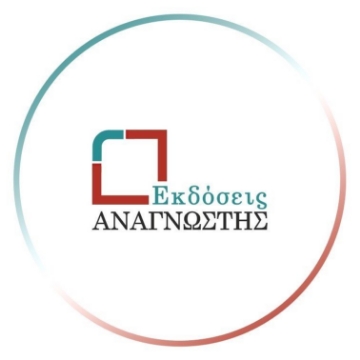Προδιαγραφές προϊόντων
| Χαρακτηριστικά | Χαρακτηριστικά |
|---|---|
| Ημερομηνία Έκδοσης | 11/2024 |
| Σελίδες | 404 |
| Εξώφυλλο | Μαλακό εξώφυλλο |
| Διαστάσεις | 21χ14 |
| Ξενόγλωσσος τίτλος | Μεταπατερική Θεολογία καί Ἐκκλησιαστική Πατερική Ἐμπειρία |
Μόνο οι εγγεγραμμένοι χρήστες μπορούν να γράψουν σχόλια
Βιβλία του ίδιου Συγγραφέα
Μεταπατερική θεολογία και εκκλησιαστική πατερική εμπειρία
Στο παρόν βιβλίο δημοσιεύονται κείμενα, τα περισσότερα των οποίων εκφωνήθηκαν σε διάφορα Συνέδρια και Θεολογικές Ημερίδες και δημιούργησαν διάφορες συζητήσεις....
€25,00 €22,50
The Science of Spiritual Medicine
The book "The Science of Spiritual Medicine" consists of the basic chapters on healing from two books in Greek (which have not been translated into English) entitled Therapeutic Treatment and Discussions on Orthodox Psychotherapy....
€24,00 €21,60
Η ιατρική εν Πνεύματι επιστήμη
Η όλη θεραπευτική αγωγή της εκκλησίας δεν έχει σκοπό απλώς την ηθική και κοινωνική εξισορρόπηση του ανθρώπου, αλλά την επανασύνδεση των σχέσεών του με τον Θεό και τους συνανθρώπους του....
€25,48 €22,93
Catechisme illustre de l Eglise Orthodoxe
"A Visual Catechism" is a book written in an original way, which offers essential information to young children and those wishing to come to the Orthodox Church and be baptised....
€15,14 €13,63
Εις μνημόσυνον
Στο βιβλίο αυτό ο συγγραφέας βιογραφεί τους γονείς του Σωτήριο και Ευτυχία και την θεία του Παρασκευή, με βάση τις επιστολές που του έστειλαν κατά καιρούς....
€12,23 €11,01
Παλαιόν όφλημα
Πολλοί τον γνωρίζουν τον μακαριστό Σεβαστιανό από τους αγώνες του για το Βορειοηπειρωτικό ζήτημα και αγνοούν το βάθος της προσωπικότητάς του....
€10,20 €9,18
Εμπειρική δογματική της Ορθοδόξου Καθολικής Εκκλησίας - Β
Πριν λίγο καιρό εξέδωσα τον Α΄ τόμο του βιβλίου «Εμπειρική Δογματική», κατά τις προφορικές ομιλίες του μακαριστού Καθηγητού π....
€26,00 €23,00
A Night in the Desert of the Holy Mountain
This is the author s first book and has a distinguished place among all his writings because of its wide circulation....
€10,85 €9,76
Το σώμα του ανθρώπου η άσκηση και η άθλησή του
Παρά την πρόοδο των διαφόρων επιστημών και την εξέλιξη των πραγμάτων, στο κέντρο των ενδιαφερόντων παραμένει ο άνθρωπος....
€7,00 €6,30
Ορθόδοξη ψυχοθεραπεία
Η σειρά των βιβλίων που αναφέρονται στην Ορθόδοξη Ψυχοθεραπεία δίνει την δυνατότητα στον αναγνώστη να εντρυφήσει στο μεγάλο θέμα της θεραπείας της ψυχής....
€15,00 €12,70
Hesychia and Theology
In this book, entitled "Hesychia and Theology: The Context for Man’s Healing in the Orthodox Church", seventeen texts are published which make clear how indispensable for the knowledge of God is the hesychastic and neptic Tradition of the Church, as presented in the writings and teaching of the holy Fathers....
€23,42 €21,08
The Illness and Cure of the Soul in the Orthodox Tradition
The fourth book in the series "Orthodox Psychotherapy" publishes the basic points of discussions which the author had with a group of Christians, members of a Parish....
€10,90 €9,81
Orthodox Spirituality
This is the second book in the series "Theoria and Praxis" published by the Apostolic Ministry of the Church of Greece....
€7,37 €6,63
The Feasts fo the Lord
This book presents the basic theological events relating to Christ the Lord, and offers interpretative keys to enable us to understand the central Christological points of the Lord’s feasts....
€27,05 €24,34















































